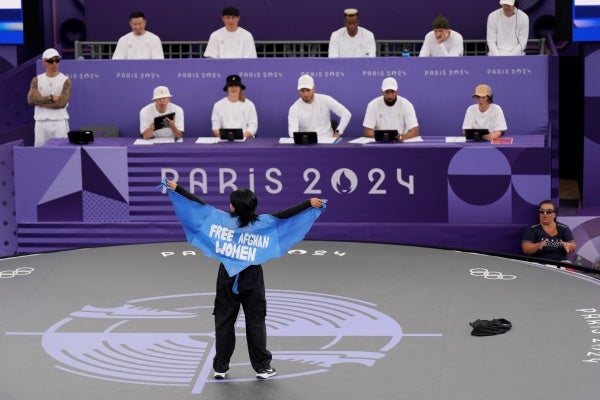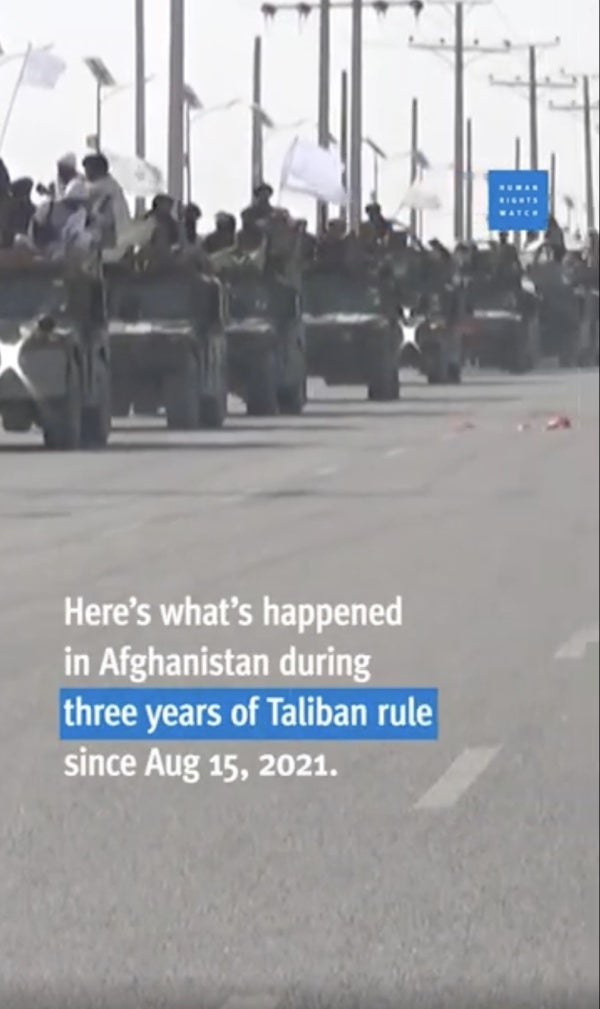Lea la versión en español
“Sport is one of the most powerful platforms for promoting gender equality and empowering women and girls.”
“As the leader of the Olympic Movement, the International Olympic Committee is taking continuous action to advance gender equality.”
These are direct quotes from the website of the International Olympic Committee (IOC), which has made much of the gender equality achieved at Paris 2024. It highlights a “ground-breaking first” with a 50/50 split of women and men athletes for the first time in history. It also wisely notes that equality is not just about numbers.
“Recognising that having gender-balanced Olympic Games is not enough, the International Olympic Committee (IOC) has taken increasing action over the years to ensure it is leading by example and encouraging the whole Olympic Movement to advance gender equality both on and off the field of play.”
With such a clear, upstanding philosophy, it is simply bizarre that Olympic athlete Manizha Talash was disqualified from the Paris 2024 Olympics for promoting gender equality.
An Afghan breaker competing with the Olympic refugee team, Manizha Talash, also known as “b-girl Talash,” was given the boot from the Olympics’ breaking competition after she competed wearing a cape that said “Free Afghan Women.”
The World DanceSport Federation, the governing body for the sport of breaking, said Talash was disqualified for “displaying a political slogan on her attire in violation of Rule 50 of the Olympic Charter.”
Governing bodies in the Olympic movement have long used Rule 50 to punish athletes who openly support human rights causes, like Talash did in Paris.
Still, Talash’s three words, “Free Afghan Women,” delivered a much-needed reminder to the world. Since taking power in Afghanistan three years ago, the Taliban have created “the world’s most serious women’s rights crisis.” They ban girls and women from secondary and higher education, they restrict women’s freedom of movement, and they block women from many jobs.
The Taliban also prohibit women and girls from playing sports – something the International Olympic Committee itself has condemned repeatedly in recent years.
In 2023, for example, the IOC Executive Board said it, “continues to be extremely concerned by the restrictions placed on women and young girls to access sport in Afghanistan, which have not been reversed despite the repeated calls from the IOC and which run contrary to the Olympic values of non-discrimination, inclusion and respect.”
This is simply a long-winded way of saying what Talash was disqualified for displaying on her cape: “Free Afghan Women.”
Manizha Talash should not be punished for promoting gender equality. The decision to disqualify her should be overturned, and the International Olympic Committee should stop using Rule 50 to punish athletes for supporting universal human rights.












